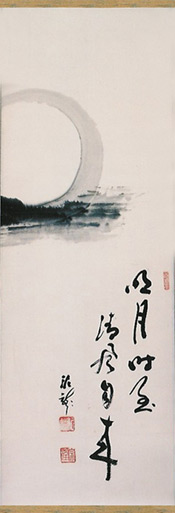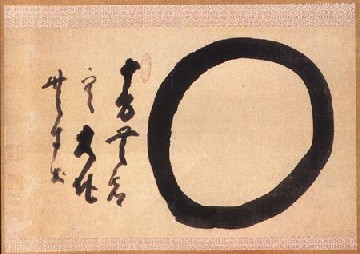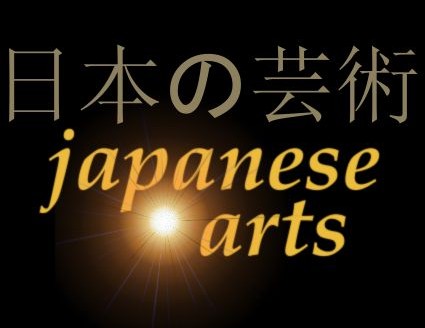| architecture |
| calligraphy |
| ceramics |
| clothing |
| comics |
| gardens |
| lacquerwork |
| literature |
| movies |
| music |
| painting |
| poetry |
| sculpture |
| tea ceremony |
| television |
| theatre |
| weaponry |
| thematic routes |
| timeline |
| the site |
context: painting > Zen painting > Subjects

|
a moon-enso, by Deiryu |
Enso
An enso is a painting of a circle, customarily executed with a single brushstroke. It's always accompanied by a few words, and the implied meaning is generally something to do with nothingness, experience of the void, a state that Zen meditation seeks, or notions of spiritual simplicity, purity, minimalism. I said at the top of the Zen painting section that not understanding Zen doesn't have to be a barrier to loving Zen art, and I think that is mostly true, but I do stumble here. I have enjoyed looking at many enso paintings, but their special place in Zen art is opaque to me. They are said to express the artist's Zen character (and note that virtually all noted Zen artists were also Zen priests or monks) most clearly, with no deception possible. My pleasure is limited to the calligraphic gesture, the variation in the join and the way the brush is charged, the occasional compositional trick.

|
by Hakuin Ekaku
|
backwards: Hoteiforwards: Begging monks |
